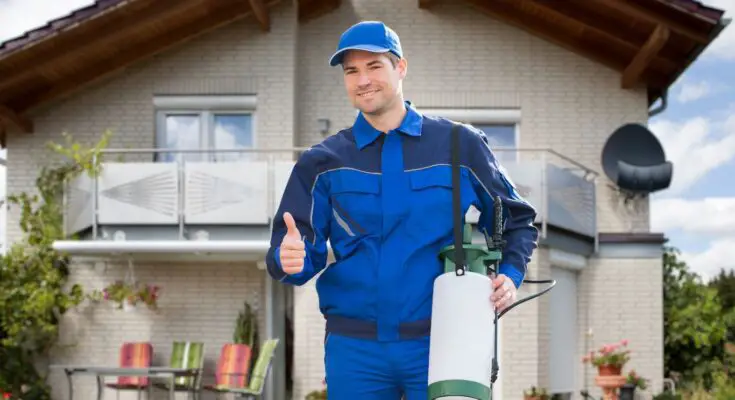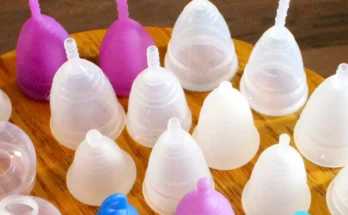Pests can be a persistent problem for homeowners, causing damage, spreading diseases, and creating general discomfort. Effective pest control is essential for maintaining a clean, healthy, and comfortable living environment, whether you’re dealing with ants in the kitchen, rodents in the attic, or termites in the walls. This comprehensive guide will explore various strategies and techniques to help you keep your home pest-free.
Understanding Common Household Pests
Before diving into pest control methods, it’s crucial to understand the types of pests you might encounter in your home. Here are some of the most common household pests:
Ants
Ants are tiny but mighty invaders that can quickly establish colonies in and around your home. Common species include:
- Carpenter ants
- Pavement ants
- Odorous house ants
- Fire ants
Rodents
Mice and rats are not only a nuisance but can also pose serious health risks. They can contaminate food, damage property, and spread diseases.
Cockroaches
These resilient insects are notorious for their ability to survive in various environments. Common species include:
- German cockroaches
- American cockroaches
- Oriental cockroaches
Termites
Termites can cause extensive structural damage to homes by feeding on wood and other cellulose-based materials.
Bed Bugs
These small, blood-feeding insects can infest bedding, furniture, and other soft furnishings, causing discomfort and sleepless nights.
Prevention: The First Line of Defense
Preventing pests from entering your home is the most effective and cost-efficient approach to pest control. Here are some key prevention strategies:
- Seal entry points: Inspect your home’s exterior for cracks, gaps, and holes, and seal them with appropriate materials like caulk or steel wool.
- Maintain cleanliness: Regular cleaning, especially in the kitchen and dining areas, helps eliminate food sources that attract pests.
- Proper food storage: Store food in airtight containers and promptly clean up spills and crumbs.
- Reduce moisture: Fix leaky pipes and ensure proper ventilation to reduce humidity, which attracts many pests.
- Declutter: Remove potential hiding spots by keeping your home tidy and organized.
- Proper waste management: Use sealed trash cans and dispose of garbage regularly.
- Maintain your yard: Keep your lawn mowed, trim bushes and trees away from your home’s exterior, and remove standing water.
Natural Pest Control Methods
For those who prefer eco-friendly solutions, there are several natural pest control methods you can try:
Essential Oils
Many essential oils have pest-repelling properties. Some effective options include:
- Peppermint oil for mice and spiders
- Citronella oil for mosquitoes
- Tea tree oil for ants and cockroaches
To use, mix a few drops of essential oil with water in a spray bottle and apply to affected areas.
Diatomaceous Earth
This natural powder can effectively control insects with exoskeletons, such as ants and cockroaches. Sprinkle it in areas where pests are likely to travel.
Vinegar Solutions
A mixture of equal parts water and white vinegar can deter ants and other insects. Spray the solution along entry points and known pest pathways.
Companion Planting
Certain plants can repel pests naturally. Consider planting:
- Lavender to repel moths and flies
- Marigolds to deter mosquitoes and aphids
- Mint to discourage ants and mice
Chemical Pest Control Options
When natural methods aren’t sufficient, chemical pest control products can be effective:
- Baits: These contain attractive food mixed with slow-acting poison, allowing pests to carry the bait back to their colonies.
- Sprays: Available for various pests, these can provide quick knockdown of visible insects.
- Dusts: Long-lasting powders that can be applied in cracks and crevices where pests hide.
- Foggers: Also known as “bug bombs,” these release insecticide to treat an entire area at once.
Always follow product instructions carefully and keep these chemicals out of reach of children and pets.
Professional Pest Control Services
For severe infestations or persistent problems, professional pest control services may be necessary. These experts have access to more powerful treatments and can develop comprehensive pest management plans tailored to your specific needs.
When seeking pest control St George, look for licensed and experienced professionals who use integrated pest management (IPM) approaches. IPM combines various control methods to provide long-term, sustainable pest management solutions.
Dealing with Specific Pests
Ant Control
- Identify and seal entry points
- Use ant baits or natural repellents like cinnamon or bay leaves
- Keep food in airtight containers and clean up spills promptly
Rodent Control
- Set traps in areas of high activity
- Use ultrasonic repellent devices
- Seal entry points with steel wool or caulk
Cockroach Control
- Use gel baits in cracks and crevices
- Place sticky traps to monitor infestation levels
- Keep your home clean and dry
Termite Control
- Schedule regular professional inspections
- Use termite baits or chemical barriers
- Address moisture issues in and around your home
Bed Bug Control
- Wash and dry bedding on high heat
- Vacuum thoroughly and dispose of the bag immediately
- Consider professional heat treatments for severe infestations
Maintaining a Pest-Free Home
Once you’ve successfully controlled a pest problem, it’s important to maintain your efforts to prevent future infestations:
- Conduct regular inspections of your home’s interior and exterior
- Continue practicing good sanitation and food storage habits
- Address any moisture or structural issues promptly
- Keep up with yard maintenance
- Consider scheduling periodic professional pest control treatments
The Importance of Integrated Pest Management
Integrated Pest Management (IPM) is a comprehensive pest control approach focusing on long-term prevention and management. IPM principles include:
- Identifying pests accurately
- Monitoring pest populations
- Setting action thresholds
- Using a combination of control methods
- Evaluating results and adjusting strategies as needed
By adopting an IPM approach, you can effectively manage pests while minimizing the use of pesticides and reducing environmental impact.
Wrapping Up: A Holistic Approach to Pest Control
Effective pest control requires a multi-faceted approach that combines prevention, natural methods, and targeted treatments when necessary. By understanding the pests you’re dealing with and implementing various strategies, you can create a pest-free environment in your home. Remember that persistence and consistency are key in pest management, and don’t hesitate to seek professional help for challenging infestations. You can reclaim your space and enjoy a comfortable, pest-free home with the right approach.



